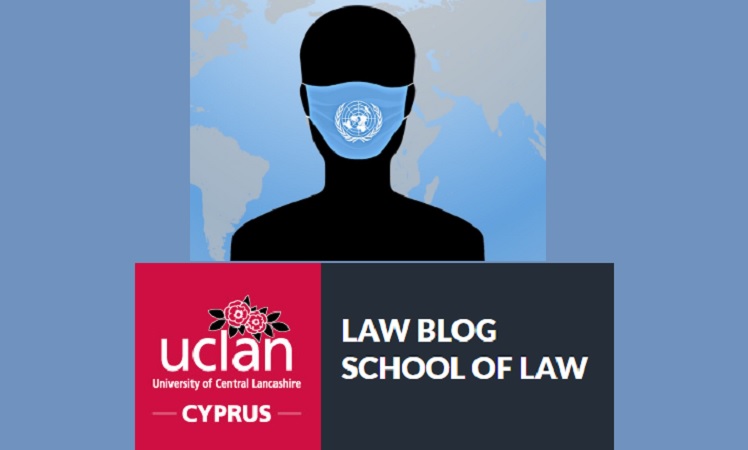An article by Nadia Kornioti, PhD Candidate at the University of Central Lancashire (UCLan) and an Associate Lecturer at UCLan Cyprus.
The emergency measures taken by many governments during the ongoing COVID-19 emergency, have given rise to multiple discussions among lawyers, academics and professionals alike, in Cyprus and abroad. Drawing from the commentary on behalf of Cypriot lawyers, focusing primarily on issues of constitutionality and human rights, the present post aims at illustrating past and ongoing discussions in the area of public international law, seeking to draw attention to aspects of the relevant international legal framework.
With a brief reference to International Human Rights Law, the post moves on to illustrate the work of the International Law Association on the protection (or lack of protection) of human rights principles in times of emergency, justifying the concerns raised by professionals at the domestic level. It then further gives an overview of the tracking and monitoring mechanisms established with regard to the COVID-19 measures and the concerns raised by various organisations and institutions, and an overview of state obligations under Article 12 of the 1966 International Covenant on Economic, Social and Cultural Rights (ICESCR) and the International Health Regulations (IHR) of the World Health Organisation.
It concludes with acknowledging that emergency measures with a direct impact on the rights of a state’s population are by their very nature measures at the edge of the Rule of Law, stating the case in favour of international collaboration and the need to address the relevant aspects of the international legal order, in addition to issues of constitutionality and domestic human rights.
Read the article at UCLan’s Law Blog




